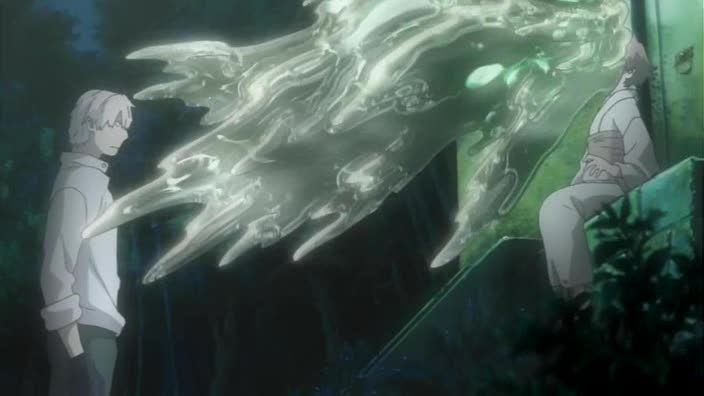This blog post originally ran on Manga Therapy in May. As I make my year-end assessment of my best writing of 2014, I keep coming back to this post and thought it needed to live on my site, too. I hope it will be just as helpful a second time.
“Maybe you should toughen up and stop wallowing in bed.”
You wouldn’t say the above sentence to somebody with a broken leg. So why is it acceptable to say to somebody with an equally real disease, depression?
Mental illness has long been misunderstood because its symptoms aren’t always visible to outsiders. Leave it to anime to bring those symptoms to a highly visible surface.
Tony and I have talked before about how anime can clarify human behavior for people who usually have trouble comprehending it. There have been no formal studies on the topic, so I can’t speak authoritatively that this is the case.
Whether intentional or not, anime makes people easier to understand. Exaggerated facial expressions demystify internal feelings. Bright hair colors make it easy to differentiate different characters even for people who have trouble with facial recognition.
I’ve insisted to Tony that in the same way, anime has the potential to unshroud mental illness. I think that’s one way to interpret the plot of Mushi-shi—as mental illness taking physical form.
In Mushi-shi, a doctor and storyteller named Ginko travels around rural Japan witnessing unusual phenomena which he calls mushi, a word for “insects” that here may also mean “spirits.” When humans and mushi interact, things can and do often go awry.
The funny thing is, the mushi surface peoples’ mental struggles. A man mourning his sister is enchanted by mushi so he is literally unable to feel. A jilted lover literally begins to fade away after she has her heart broken. Every time, Ginko’s medicine is the same: the person must recognize the problem inside herself in order to overcome it.
It’s certainly not that easy to cure mental illness, but the message is the same. Mushi-shi is simply showing people’s mental anguish on the outside. The inner world is still where the trouble is. Supporters can do their best to help, but the real battle is inside the person.
Mushi-shi shows people who deal with much the same mental problems as people in real life—grief, heartbreak—and give these illnesses visible physical characteristics. But just because, in real life, we don’t show these symptoms on the outside, we experience them just the same.
The next time a friend or loved one is going through a tough time, think about Mushi-shi. You can’t see their struggle but it’s there inside them. And the best gift you can give to a person suffering from mental anguish is to trust them that what they’re feeling is real.

6 Comments.
The final paragraph sums it up the best in terms of depression.
Now I have yet another anime in my crunchyroll queue.
@zoeliddel:disqus Welcome to the fandom! Keep reading my blog and you will have a queue so long you’ll have to watch anime all day!
Not that that’s a bad thing :)
YAAAAAAAAAAAAAAAAAAAAAY. I probably need to follow this soon.
I struggle with obsessive-compulsive disorder. I’ve been with others who have struggled with the same, and it’s just as life-altering for them as it is for me. I sympathize with anyone who suffers from any mental disorder.
@tommyphillips:disqus thank you so much for sharing. OCD is a serious illness that sadly gets trivialized in jokes and pop culture, and I thank you for making it more visible.